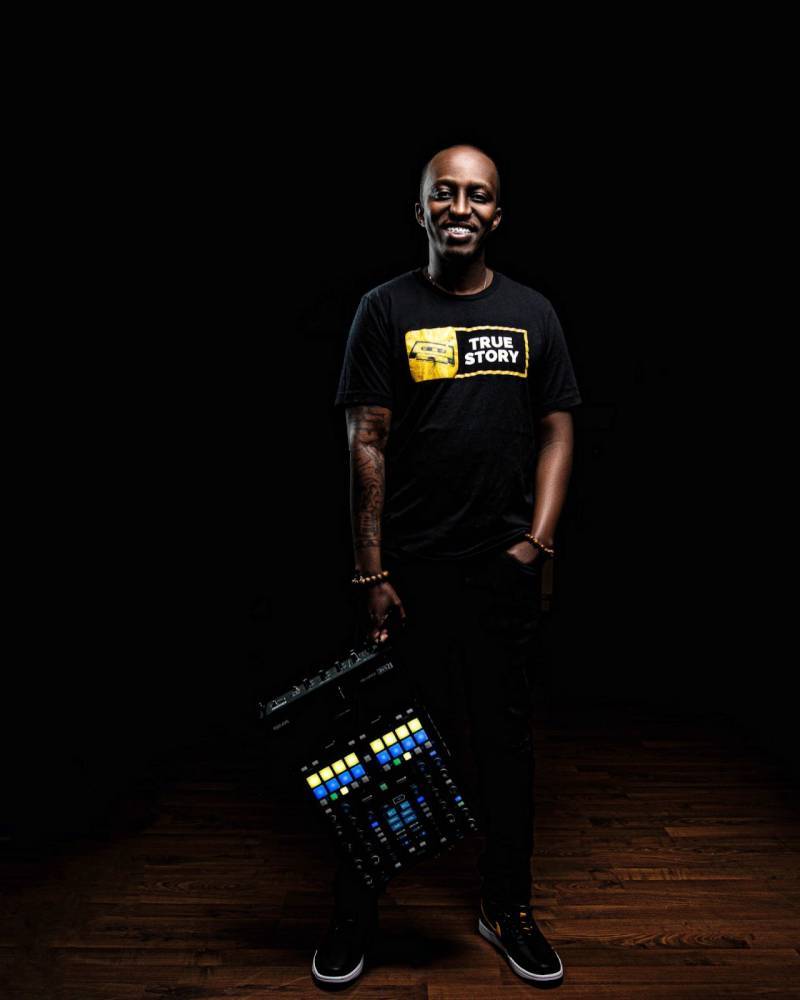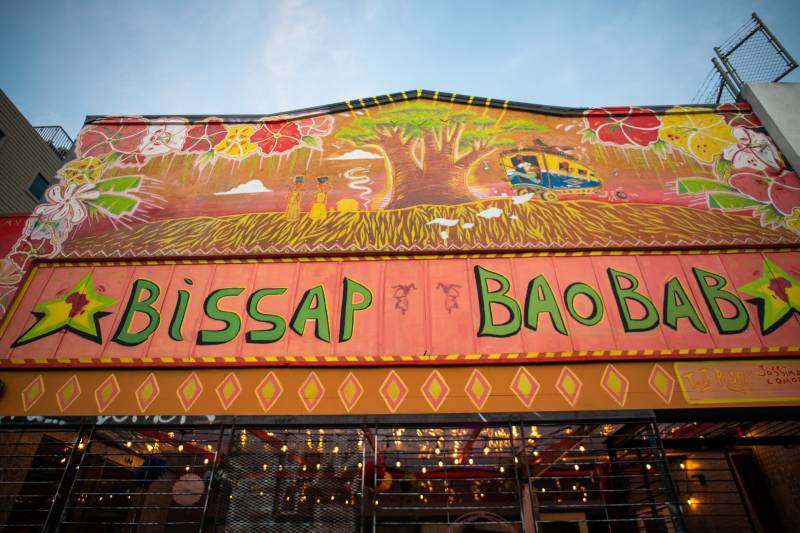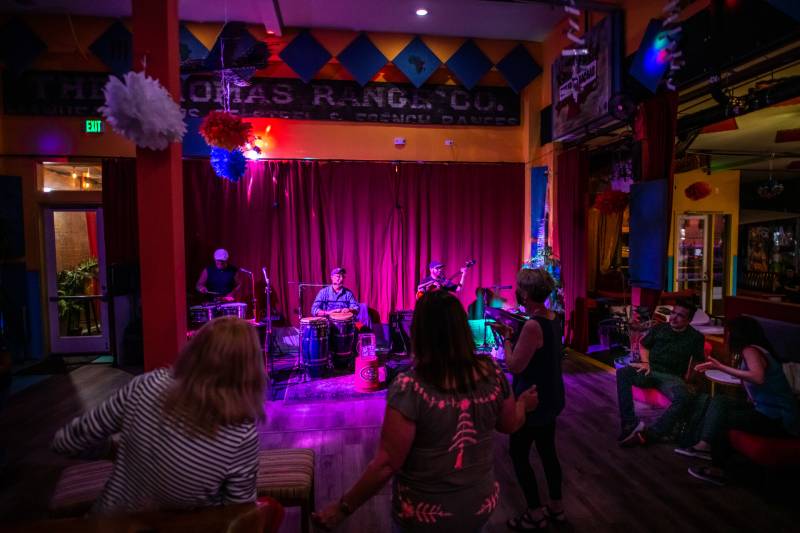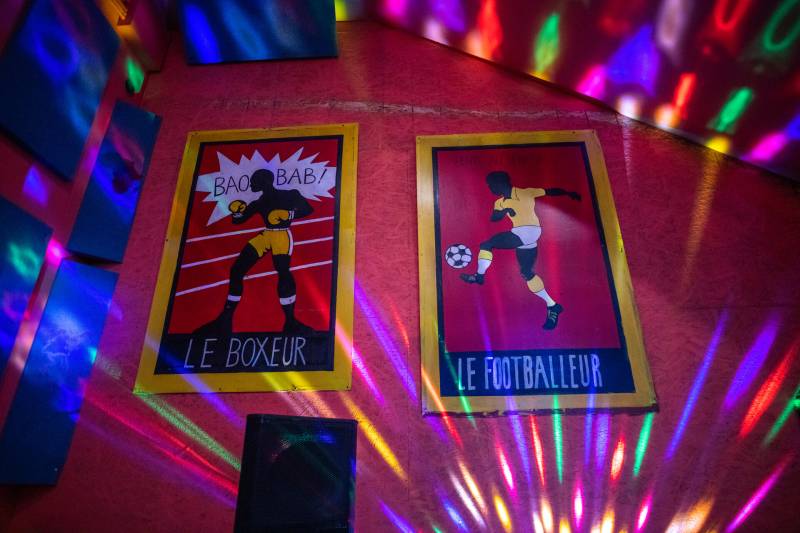But when I walked in, the first person I saw was DJAYSLIM.
He was queuing up hit after hit: “Assurance” by Nigerian star Davido, then “Case” by fellow Nigerian Teni. When his turn at the decks was over, we got to talking, and I learned that he has been playing African music in the Bay Area for close to two decades.
In 2001, DJAYSLIM, whose real name is Martin Mwangi, left Nairobi, Kenya and moved into his sister’s place in Oakland. Her boyfriend at the time was a DJ. Mwangi had never considered DJing, but his deep love of music and an open set of turntables in the house propelled him to give it a shot.
“I would just practice in the house when my sister [was] at work during the day. At that time my love was reggae and dancehall. That’s the time for ‘Everyone Falls In Love,’ ‘Heads High.’ That’s all you heard the whole time,” recalled Mwangi.
In the early 2000s, the reggae and dancehall scene in Oakland was robust. Clubs like New Karibbean City, Oasis and Air Lounge had regular events. African music, however, was a lot harder to find. The first time Mwangi heard someone playing African music at a club in the Bay, it came from an unexpected source. He went to an international-themed party at the Shattuck Down Low in Berkeley where he saw DJ Fuze, of the storied Bay Area hip-hop group Digital Underground, spinning the latest jams from the continent.
“DJ Fuze had gone on tour to Paris, France, and when he was there, he’s a curious guy so he’s like, ‘Oh, what music is this they’re listening to?’ So he collected [Magic System’s] ‘Premier Gaou.’”
“He played it while we were there at the club. I ran to the DJ booth. I’m like, ‘How does this guy know this music?’ There’s no YouTube, there’s nothing, right? So us Africans, we went crazy. And at that moment I was like, ‘This is what I want to do, and I want to do it the African style.’”
Mwangi started off throwing house parties for the Kenyan community, where he would cycle between dancehall, reggae and a few CDs of African pop music he would get from someone who had recently traveled home. It wasn’t the most efficient way to share music, but it worked in bringing together different groups of Africans in the Bay Area.
“Nigerians used to hang out with Kenyans a lot here,” Mwangi recalled. “One of the gentlemen used to be a promoter. [He] came to a Kenyan event and heard me play and he was like, ‘Yo, I’m gonna invite you for this Nigerian event. Just come, we’ll give you the music.’ And guess what he gave me? ‘No One But You,’ P-Square! He gave me that CD, saying ‘Play number one and number four,’ I’ll never forget!”
Artists with Pan-African hits like Ivorian group Magic System and Nigerian duo P-Square helped popularize African pop music in the diaspora. African DJs like Mwangi, capitalizing on this growing popularity, started pushing promoters to let them play African music in mainstream clubs. Eventually, Mwangi and another key figure named DJ Burt started one of the first regular events, a monthly night called First Saturdays.
“That was all African music from the beginning to the end. Now Africans had a place to go at a mainstream club,” said Mwangi.






